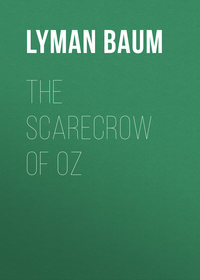 полная версия
полная версияThe Last Egyptian
“If my brother obtains any further valuable knowledge,” said he, finally, “he will wish to sell it to good advantage. And it is evident to both of us that old Hatatcha has visited some secret tomb, from whence she has taken the treasure that enabled her to astound London for a brief period. When her wealth was exhausted she was forced to return to her squalid surroundings, and by dint of strict economy has lived upon the few coins that remained to her until now. Knowing part of your grandmother’s story, it is easy to guess the remainder. The coins of Darius Hystaspes date about five hundred years before Christ, so that they would not account for Hatatcha’s ample knowledge of a period two thousand years earlier. But mark me, Kāra, the tomb from which your grandmother extracted such treasure must of necessity contain much else – not such things as the old woman could dispose of without suspicion, but records and relics which in my hands would be invaluable, and for which I would gladly pay you thousands of piasters. See what you can do to aid me to bring about this desirable result. If you can manage to win the secret from your grandmother, you need be her slave no longer. You may go to Cairo and see the dancing girls and spend your money freely; or you can buy donkeys and a camel, and set up for a sheik. Meantime I will keep my dahabeah in this vicinity, and every day I will pass this spot at sundown and await for you to signal me. Is it all clear to you, my brother?”
“It is as crystal,” answered the Egyptian gravely.
He took another cigarette, lighted it with graceful composure, and rose to his feet. Winston also stood up.
The sun had dropped behind the far corner of Gebel Abu Fedah, and with the grateful shade the breeze had freshened and slightly cooled the tepid atmosphere.
Wrapping his burnous around his tall figure, Kāra made dignified obeisance.
“Osiris guard thee, my brother,” said he.
“May Horus grant thee peace,” answered Winston, humoring this disciple of the most ancient religion. Then he watched the Egyptian stalk proudly away over the hot sands, his figure erect, his step slow and methodical, his bearing absurdly dignified when contrasted with his dirty tunic and unwashed skin.
“I am in luck,” he thought, turning toward the bank to summon Hassan and Abdallah; “for I have aroused the rascal’s cupidity, and he will soon turn up something or other, I’ll be bound. Ugh! the dirty beast.”
At the foot of the mountains Kāra paused abruptly and stood motionless, staring moodily at the sands before him.
“It was worth the bother to get the cigarettes,” he muttered. Then he added, with sudden fierceness: “Twice he spurned me with his foot, and called me ‘dog’!”
And he spat in the sand and continued on his way.
CHAPTER II
HATATCHA
The mountains of Abu Fedah consist of a low range about twelve miles long and from two to three hundred feet in height. These hills are wedge-shaped, and from a narrow, uneven ridge at the summit the sides slope downward at a sharp angle on either side, affording little apparent foothold to one who might essay to climb the steeps. At the south end are pits wherein were found numbers of mummified crocodiles, proving that these reptiles were formerly worshipped by the natives of Al-Kusiyeh, which is the ancient city of Qes of the hieroglyphic texts, and was afterward called Cusae by the Greeks. It was, in its prime, the capital of the fourteenth nome or province of Upper Egypt, and a favorite winter abode of the kings of the Middle Empire. The modern village, as before explained, lies a mile or two from the Nile bank, in a fertile valley watered by bubbling springs. The inhabitants are mostly Arabs, or a mixture of the Arab blood with that of the native fellaheen, which last, in common with the Copts, are direct descendants of the ancient Egyptians.
The early Egyptologists expected to find important tombs secreted in the limestone cliffs of Gebel Abu Fedah; but careful search only revealed the mummy crocodile pits and a few scattering and uninteresting cavities roughly hewn in the rocks, which might have contained mummies at one time, but had been rifled of their contents ages ago. The few inscriptions remaining in these rock tombs indicated that they were the burial places of ordinary citizens of Qes, and such cavities as were observed all faced the Nile. The opposite slopes of the mountains, facing the east, seemed never to have been utilized for tombs, fond as the Egyptians were of such opportunities to inter their dead in rocky places, above the reach of jackals or marauders.
Kāra skirted the south end of the mountain and passed around the edge of a bleak gray cliff. Here, close against the overhanging sandstone, was clustered a nest of wretched hovels, built partially of loose fragments of rock and partly of Nile mud baked in the sun. The place was called Fedah by the natives, and its scant dozen of inhabitants were those of pure Egyptian lineage, who refused to mingle with the natives of Al-Kusiyeh.
The most substantial of the dwellings was that occupied by Hatatcha and her grandson. It had been built against a hollow or cave of the mountain, so that the cane roof projected only a few feet beyond the cliff. A rude attempt on the part of the builders to make the front wall symmetrical was indicated by the fact that the stones bore quarry marks, and at the entrance arch, which had never been supplied with a door, but was half concealed by a woven mat, the stones were fully four feet in thickness.
The other huts, ranged beside and before this one, were far less imposing in construction; but all had the appearance of great antiquity, and those at the north and south edges of the huddle were unoccupied and more or less ruined and neglected. Tradition said that Fedah, in spite of its modern Arabic name, was as old as ancient Qes, and there was no reason to doubt the statement. Its location was admirable in summer, for the mountain shaded it during the long hot afternoons; but around it was nothing but sand and rock, and the desert stretched in front as far as the borders of Al-Kusiyeh.
Kāra, entering the short and narrow street between the hovels, pushed a goat from his path and proceeded calmly toward his dwelling. As he entered its one room, he paused to allow his eyes to grow accustomed to the gloom and then gazed around with an expression of mild surprise.
In one corner, upon a bed of dried rushes, lay the form of an old woman. Her single black cotton garment was open at the throat, displaying a wrinkled, shrunken bosom that rose and fell spasmodically, as if the hag breathed with great effort. Her eyes were closed and the scant, tousled locks of fine gray hair surrounding her face gave it a weird and witch-like expression. In spite of her age and the clime in which she ad lived, Hatatcha’s skin was almost as white as that of Europeans, its tint being so delicate as to be scarcely noticeable.
Upon a short wooden bench beside the rushes sat a girl with a palm branch, which she swayed back and forth to keep the flies from settling upon Hatatcha’s face. She was, perhaps, fifteen years of age, but as fully matured in form as an English girl of twenty-five. Her face was remarkably handsome from the standpoint of regularity of contour, but its absolute lack of expression would render it uninviting to a connoisseur of beauty. Her dark eyes were magnificent, and seemed to have depths which were disappointing when you probed them. She wore the conventional black gown, or tunic, but because of the heat had allowed it to slip down to her waist, leaving her shoulders and breasts bare.
After a long and thoughtful look at his grandmother, Kāra sat down beside the girl and put his arm around her, drawing her close to his body. She neither resented the caress nor responded to it, but yielded herself inertly to the embrace while she continued to sway the palm branch with her free right arm.
“Ah, my Nephthys,” said the man, lightly, in the Coptic tongue, “is our Hatatcha in the grip of the devils again?”
The girl made no reply, but at the sound of Kāra’s voice the old woman opened her great eyes and gazed for an instant steadfastly upon her grandson. Her hands, which had been nervously clutching her robe, were raised in supplication, and she said in English, in a weak, hoarse voice:
“The draught, Kāra! Be quick!”
The man hesitated, but released the girl and stood up.
“It is the last, my Hatatcha. You know that no more can be procured,” he said, in protest.
“I shall need no more,” she answered, with much difficulty. “It is the last time. Be quick, Kāra!” Her voice died away in an odd gurgle, and her chest fluttered as if the breath was about to leave it.
Kāra, watching her curiously, as a dog might, was impressed by the symptoms. He turned to Nephthys.
“Go out,” he commanded, in Coptic, and the girl arose and passed under the arch.
Then he went to a part of the wall and removed a loose stone, displaying a secret cavity. From this he took a small vase, smooth and black, which had a stopper of dull metal. Carrying it to Hatatcha, he knelt down, removed the stopper and placed the neck of the vase to her lips. The delicate, talon-like fingers clutched the vessel eagerly and the woman drank, while Kāra followed the course of the liquid down her gullet by watching her skinny throat.
When it was done, he carried the empty vase back to the crypt and replaced the loose stone. Then he returned to the bedside and sat down upon the bench. A bowl containing some bits of bread stood near. He stooped and caught a piece in his fingers, munching it between his strong teeth while he stared down upon Hatatcha’s motionless form.
It was quite dark in the room by this time, for twilights are short in Egypt. But the pupils of the man’s eyes expanded like those of a cat, and he could follow the slow rise and fall of the woman’s chest and knew she was again breathing easily.
An hour passed, during which Kāra moved but once, to drink from a jar standing in the opposite corner. Hatatcha’s condition disturbed him. If she died, he would be at a loss what to do. Unused to work and without resource of any sort, life would become a burden to him. He was, moreover, accustomed to be led by the strong old woman in all things, and she had been the provider during all the twenty-three years of his life. Kāra had been trained to think deeply upon many subjects, but here was one which had never occurred to him before because Hatatcha had never discussed it, and the matter of her death was until lately a thing that did not need to be considered. But her condition was serious to-night, and the precious life-giving elixir was gone to the last drop.
All the people around Abu Fedah deferred to Hatatcha, because she claimed, with some show of reason, to be of royal descent. But they did not know the story of Ahtka-Rā, and her escapades in London years ago were all unsuspected by them. Hatatcha only confided such things to Kāra, and he would never dare breathe them to any except the Englishman, from whose lips the tales would never be liable to return.
But there was a great deal that Kāra himself did not know, and he realized this as he gazed uneasily upon his sick grandparent. She ought to tell him where the coins and jewels had come from, and if there were any left. He would need some trifles of that sort when she was gone. And the matter of her funeral – she had expressed strange desires, at times, regarding the disposition of her body after death. How was he to find means to carry out such desires?
A voice, low and clear, fell upon his ear and made him start. Hatatcha’s big eyes were open and he caught their sparkle even in the darkness.
“Come nearer,” she said.
He dropped upon the floor at her side and sat cross-legged near her head, bending over to catch her slightest whisper. She spoke in English to him.
“Anubis calls me, my son, and I must join his kingdom. My years are not great, but they have worn out my body with love and hatreds and plans of vengeance. You are my successor, and the inheritor of my treasures and my revenge and hates. The time is come when you must repay my care and perform a mission for which I have trained you since childhood. Promise me that you will fulfil my every wish to the letter!”
“Of necessity, Hatatcha,” he responded, calmly. “Are you not my grandmother?”
She remained silent a moment.
“You are cold, and selfish and cruel,” she resumed, her tone hardening, “and I have made you so. You are intelligent, and fearless, and strong. It is due to my training. Listen, then! Once I was young and beautiful and loving, and when I faced the world it fell at my feet in adoration. But one who claimed to be a man crushed all the joy and love from my heart, and left me desolate and broken. Like a spurned hind, I crept from the glare of palaces back to my mud hut, bearing my child in my arms, and here I mourned and suffered for years and found no comfort. Then the love that had destroyed my peace fell away, and in its place Set planted the seeds of vengeance. These I have cherished, and lo! a tree has sprouted and grown, of which you, my son, are the stalwart trunk. The fruit has been long maturing, but it is now ripe. Presently you, too, will face the world; but as a man – not like the weak woman I was – and you will accomplish my revenge. Is it not so, my Kāra?”
“If you say it, my Hatatcha, it is so,” he answered. But he wondered.
“Then pay close attention to my words,” she continued, “and store them carefully in your mind, that nothing shall be forgotten when it is needed to assist you. I will explain all things while I have the strength of the elixir, for when it leaves me my breath will go with it, and then your labors will begin.”
Kāra leaned still lower. For once his heart beat faster than was its custom, and he felt a thrill of excitement pervading his entire being. The climax in his life had at last arrived, and he was about to discover what things he was destined to accomplish in the great unknown world.
Hour after hour Hatatcha’s low voice continued to instruct her grandson. Occasionally she would question him, to be sure that he understood, and several names she made him repeat many times, until they were indelibly impressed upon his memory.
At last she took the forefinger of his right hand and with it made a mystic sign upon her naked breast, making him repeat after her a dreadful oath to obey her instructions in every way and keep forever certain grave secrets.
Then she fell back and lay still.
Daybreak came in time, and a streak of light crept under the arch and touched the group in the corner.
The aged hag, filthy and unkempt, lay dead upon her couch of rushes, and beside her sat Kāra, his face immobile, his eyes staring fixedly at the opposite wall.
He was thinking.
CHAPTER III
THE DRAGOMAN
Nephthys came from her mother’s hut in the cool of early morning, bearing on her head an earthen jar. She was bound for the river, to carry from thence their daily supply of water.
As she passed Hatatcha’s dwelling she found Kāra standing in the archway, and he drew the girl toward him and kissed her lips. They were cold and unresponsive.
“How is your grandmother?” she asked, indifferently.
“She is with Isis,” he answered, holding her arm with one hand and feeling her brown cheek with the other.
The girl shuddered and glanced askance at the arch.
“Let me go,” she said.
Instead, he folded an arm around her and kissed her again, while she put up a hand to steady the jar from falling.
Then Kāra experienced a sudden surprise. His body spun around like a top and was hurled with force against the opposite wall. At the same time the jar toppled from Nephthys’ head and was shattered on the ground. The girl staggered back and leaned against the stones of the arch, staring at the path ahead.
In front of her stood a young man most gorgeously arrayed. A red fez, such as many wear in Egypt, was perched jauntily upon his head. Covering his breast was a blue satin jacket elaborately braided with silver, and where it parted in front a vest of white silk showed, with a line of bright silver buttons. His knee breeches were of saffron pongee, wide and flowing, like those of a Turk, and from there down to his yellow slippers his legs were bare. Add a voluminous sash of crimson silk and a flowing mantle suspended from his shoulders, and you can guess the splendor of the man’s attire.
His person was short and inclined to stoutness, and his face, with its carefully curled black mustache, was remarkably regular and handsome. His eyes were nearly as large and black as Kāra’s, and at the present moment they flashed fire, while an angry frown distorted his brow. He stood with his legs spread apart and his hands pressed upon his hips, regarding the girl with a glance of sullen fury.
Nephthys returned the look with one of stupor. Her face was quite as expressionless as before, but her nostrils dilated a little, as if she were afraid.
“Tadros!” she muttered.
Kāra lifted his tall form from the ground and stood scowling upon his assailant.
“The cursed dragoman again!” he exclaimed, with bitterness.
Tadros turned his head slightly to direct a look of scorn upon his enemy. Then he regarded the girl again.
“What of your promise to me, woman?” he demanded, sternly. “Are you the plaything of every dirty Egyptian when my back is turned?”
Nephthys had no reply. She looked at the pattern of the silver braid upon his jacket and followed carefully its curves and twists. The blue satin was the color of lapis lazuli, she thought, and the costume must have cost a lot of money – perhaps as much as fifty piasters.
“Your mother shall answer for this perfidy,” continued the dragoman, in Arabic. “If I am to be toyed with and befooled, I will have my betrothal money back – every piaster of it!”
The girl’s eyes dropped to her feet and examined the fragments of the jar.
“It is broken!” she said, with a wailing accent.
“Bah! there are more at Keneh,” he returned, kicking away a bit of the earthenware. “It will cost old Sĕra more than the jar if she does not rule you better. Come!”
He waved his hand pompously and strutted past her to the door of her mother’s hut, paying no heed to the evil looks of Kāra, who still stood motionless in his place.
The girl followed, meek and obedient.
They entered a square room lighted by two holes in the mud walls. The furniture was rude and scanty, and the beds were rushes from the Nile. A black goat that had a white spot over its left eye stood ruminating with its head out of one of the holes.
A little withered woman with an erect form and a pleasant face met Tadros, the dragoman, just within the doorway.
“Welcome!” she said, crossing her arms upon her breast and bending her head until she was nearly double.
“Peace to this house,” returned Tadros, carelessly, and threw himself upon a bench.
Sĕra squatted upon the earthen floor and looked with pride and satisfaction at the dragoman’s costume.
“You are a great man, my Tadros,” she said, “and you must be getting rich. We are honored by your splendid presence. Gaze upon your affianced bride, O Dragoman! Is she not getting fat and soft in flesh, and fit to grace your most select harem?”
“I must talk to you about Nephthys,” said the dragoman, lighting a cigarette. “She is too free with these dirty Fedahs, and especially with that beast Kāra.”
His tone had grown even and composed by this time, and his face had lost its look of anger.
“What would you have?” asked old Sĕra, deprecatingly. “The girl must carry water and help me with the work until you take her away with you. I cannot keep her secluded like a princess. And there are no men in Fedah except old Nikko, who is blind, and young Kāra, who is not.”
“It is Kāra who annoys me,” said Tadros, puffing his cigarette lazily.
“Kāra! But he is the royal one. You know that well enough. The descendant of the ancient kings has certain liberties, and therefore takes others, and he merely indulges in a kiss now and then. I have watched him, and it does not worry me.”
“The royal one!” repeated the dragoman scornfully. “How do we know old Hatatcha’s tales are true?”
“They must be true,” returned Sĕra, positively. “My mother served Hatatcha’s mother, because she was the daughter of kings. For generations the ancestors of Kāra have been revered by those who were Egyptians, although their throne is a dream of the past, and they are condemned to live in poverty. Be reasonable, my Tadros! Your own blood is as pure as ours, even though it is not royal. What! shall we Egyptians forget our dignity and rub skins with the English dogs or the pagan Arabs?”
“The Arabs are not so bad,” said Tadros, thoughtfully. “They have many sensible customs, which we are bound to accept; for these Muslims overrun our country and are here to stay. Nor are the simple English to be sneered at, my Sĕra. I know them well, and also their allies, the Americans and the Germans and French. They travel far to see Cairo and our Nile, and drop golden sovereigns into my pockets because I guide them to the monuments and explain their history, and at the same time keep the clever Arabs from robbing them until after I am paid. Yes; all people have their uses, believe me.”
“Ah, you are wonderful!” ejaculated the old woman, with earnest conviction.
“I am dragoman,” returned the man, proudly, “and my name is known from Cairo to Khartoum.” He tossed a cigarette at Sĕra, who caught it deftly and put it between her lips. Then he graciously allowed her to obtain a light from his own cigarette.
Meantime, Nephthys, on entering the hut behind Tadros, had walked to the further side of the room and lifted the lid of a rude chest, rough hewn from eucalyptus wood. From this she drew a bundle, afterward closing the lid and spreading the contents of the bundle upon the chest. Then she turned her back to the others, unfastened her dusty black gown, and allowed it to fall to her hips. Over her head she dropped a white tunic, and afterward a robe of coarse gauze covered thickly with cheap spangles. She now stepped out of the black gown and hung it upon a peg. A broad gilt belt was next clasped around her waist – loosely, so as not to confine too close the folds of spangled gauze.
Tadros, during his conversation with Sĕra, watched this transformation of his betrothed with satisfaction. When she had twined a vine of artificial flowers in her dark hair, the girl came to him and sat upon his knee. Her feet were still bare, and not very clean; but he did not notice that.
“I will speak to Hatatcha about Kāra,” remarked the old woman, inhaling the smoke of her cigarette with evident enjoyment, “and she will tell him to be more careful.”
“Hatatcha is dead,” said Nephthys.
Sĕra stared a moment and dropped her cigarette. Then she uttered a shrill wail and threw her skirt over her head, swaying back and forth.
“Shut up!” cried the dragoman, jerking away the cloth. “It is time enough to wail when the mourners assemble.”
Sĕra picked up her cigarette.
“When did Hatatcha go to Anubis?” she asked her daughter.
“Kāra did not say,” returned the girl. “I was with her at the last sunset, and she was dying then.”
“It matters nothing,” said the dragoman, carelessly. “Hatatcha is better off in the nether world, and her rascally grandson must now go to work or starve his royal stomach.”
“Who knows?” whispered Sĕra, with an accent of awe. “They have never worked. Perhaps the gods supply their needs.”
“Or they have robbed a tomb,” returned Tadros. “It is much more likely; but if that is so I would like to find the place. There is money in a discovery of that sort. It means scarabs, and funeral idols, and amulets, and vases and utensils of olden days, all of which can be sold in Cairo for a good price. Sometimes it means jewels and gold ornaments as well; but that is only in the tombs of kings. Go to Hatatcha, my Sĕra, and keep your eyes open. Henf! what says the proverb? ‘The outrunner of good fortune is thoughtfulness.’”
The mother of Nephthys nodded, and drew the last possible whiff from her cigarette. Then she left the hut and hurried under the heavy arch of Hatatcha’s dwelling.
Five women, mostly old and all clothed in deep black, squatted in a circle around the rushes upon which lay the dead. Someone had closed Hatatcha’s eyes, but otherwise she lay as she had expired. In a corner Kāra was chewing a piece of sugar-cane.









